Have you heard of single and three-phase, 230V or 400V, amperage or kVA? Do you want to know which connection is right for you? And what are the consequences for your installation and your bill? We explain it all to you.
When it comes to power, it's essential to understand the units of measurement used, particularly kilovoltamperes (kVA) and kilowatts (kW). To make it easier to understand, we may consider that 1 kVA is equivalent to 1 kW or 1000 watts (find out more). This means that when you run a device that consumes 1 kW, it actually uses 1 kVA.
Table of Contents
Please note
An average household usually requires no more than 5 to 6 kVA. The standard power rating is therefore 9.2 kVA (single-phase 40A).
To promote responsible use of the electricity network, a one-off surcharge per kVA is applied to requests for power greater than 9.2 kVA.
Your connection and its power
Whatever type of connection you have, it is defined by 3 elements:
- The circuit voltage, which is expressed in Volts (V).
In Belgium, there are 2 voltage systems: either 230V or 400V. In Brussels, 80% of the territory is covered with 230V. - The electrical current, expressed in amperes (A).
This indicates the maximum current that your installation can withstand. The standard installation is 40 amps single-phase 230V. It delivers a power of 9.2 kVA. - The number of phases
To determine whether the connection is single-phase or three-phase.
The different meter powers
In electricity, power (VA) = voltage (V) x current (A). Compared to a water pipe, power is equivalent to the pressure in the pipe (voltage) multiplied by the flow of water (current).
The higher the voltage and current, the higher the power of your meter. Consult the table below to find out how much power you need in relation to the current you need.
| Ampère |
230 V - single-phase |
230 V - three-phase | 400 V - three-phase + N |
|---|---|---|---|
| 16A | 3,7 kVA | 6,4 kVA | 11,1 kVA |
| 20A | 4,6 kVA | 8 kVA | 13,9 kVA |
| 25A | 5,8 kVA | 10 kVA | 17,3 kVA |
| 32A | 7,4 kVA | 12,7 kVA | 22,2 kVA |
| 40A | 9,2 kVA (standard) | 15,9 kVA | 27,7 kVA |
| 50A | 11,5 kVA | 19,9 kVA | 34,6 kVA |
| 63A | 14,5 kVA | 25,1 kVA | 43,6 kVA |
| 80A | - | 31,9 kVA | 55,4 kVA |
| 100A | - | 39,8 kVA | 69,3 kVA |
| 120A | - | 47,8 kVA | 83,1 kVA |
| 140A | - | 55,8 kVA | 97,0 kVA |
| 160A | - | 63,7 kVA | 110,9 kVA |
Please note
For high-voltage connections - or low-voltage connections above 56 kVA (400 V) and 40 kVA (230 V) - installation of an AMR meter is compulsory.
Find the amperage of my circuit breaker
The amperage is usually indicated directly on the circuit breaker:

Example of a 25 amp circuit-breaker (400V - three-phase + N)
Find the number of phases on my meter
The single-phase connection differs from the three-phase by the number of wires that arrive in the electrical panel. Three-phase is the most powerful.
The symbol on the meter allows you to quickly identify your type of connection:
Traditional meters
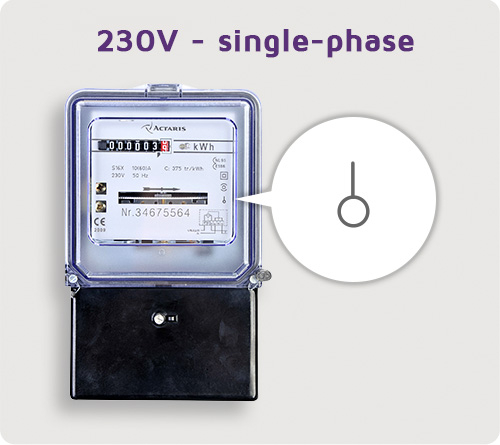 |
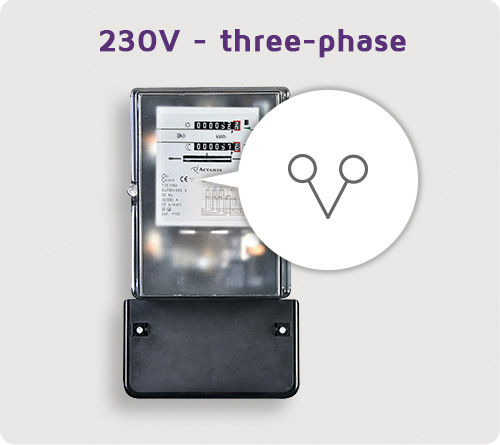 |
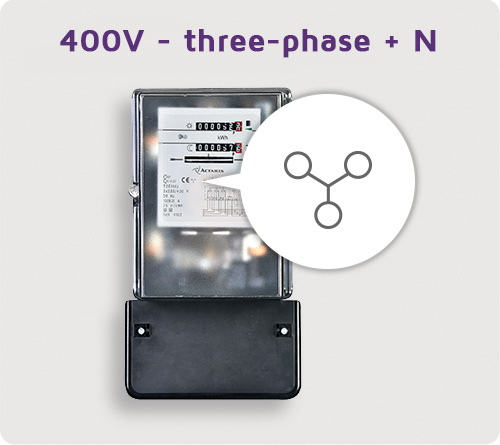 |
Smart meters
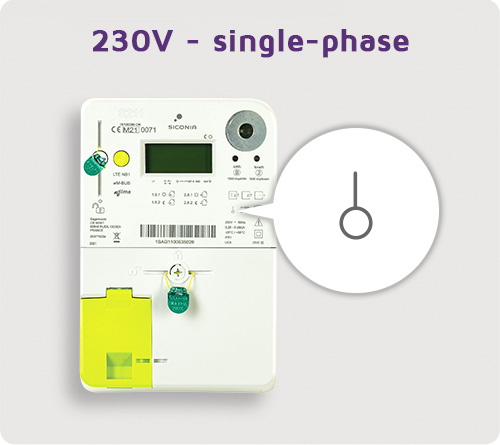 |
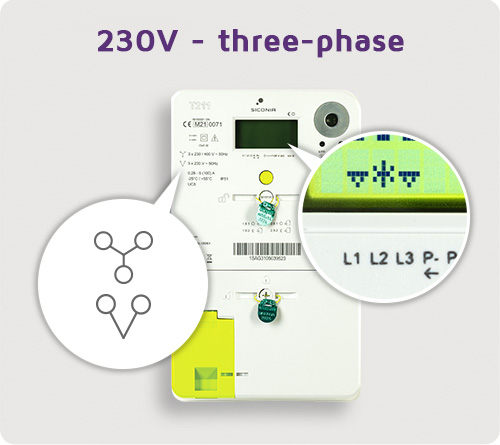 |
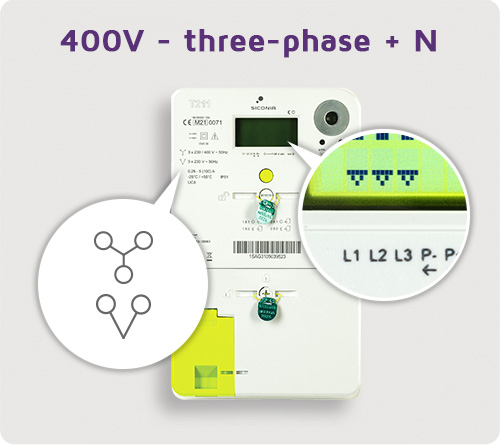 |
When do I need three-phase?
Three-phase is necessary if you use power-hungry appliances or equipment. This is the case for any machine with a motor.
Examples? A lift, a sauna, powerful ovens for the bakery, catering or ceramics industry.
Can I go from 230V to 400V?
You can go from 230V to 400V by introducing a work request. Please note: 400V is not available everywhere. Additional free study will determine if this is possible.
If it is impossible to have 400V, you always have the option of installing an autotransformer. It is also possible to switch from a single-phase connection to a three-phase connection or vice versa.
